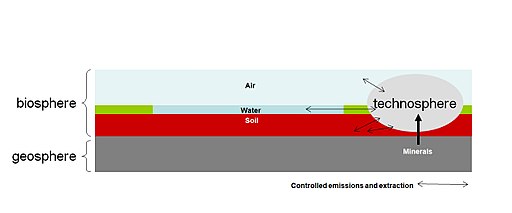In 1910 Paris suffered its second largest flood since 1658. Today the city is inundated by a public memory of that event of just over a century ago. Continue reading
Category Archives: Urban Anthropocene
“Contrasting the effects of natural selection, genetic drift and gene flow on urban evolution in white clover (Trifolium repens)”
There Goes the Neighborhood: Urban Coyotes in Pennsylvania and California
This post was co-authored by Christian Hunold, Drexel University
and Teresa Lloro-Bidart, Cal Poly Pomona
Coyotes have incorporated themselves into nearly every major city in North America. Coyotes’ ability to thrive in cities testifies not only to the Anthropocene’s blurring of human-wildlife boundaries; it also undermines the idea that Continue reading
Video of “Coupled Urban Metabolism” panel discussion
On April 19, 2018, Stephanie Pincetl, of the California Center for Sustainable Communities at UCLA, presented her ideas on coupled urban metabolism at a Continue reading
Video of “Cities and Our Future” panel discussion
Earlier this spring, Cindy Simon Rosenthal offered a series of three posts on the topic of “Cities and Our Future: Governance in the Anthropocene.” On March 6, 2018 (rescheduled
Continue reading
“A sociometabolic reading of the Anthropocene: Modes of subsistence, population size and human impact on Earth”
Urban Metabolism and Degrowth, part 2
THIS POST IS PART OF OUR SERIES ON URBAN METABOLISM.
It continues Part 1’s discussion of two readings: “Democracies with a future: Degrowth and the democratic tradition,” by Marco Deriu, and “De-growth: Do you realise what it means?” by Ted Trainer
Co-authored with Robert Bailey

The Party for Degrowth, rally in Lyon, 2007. © Yann Forget / Wikimedia Commons / CC-BY-SA-3.0.
Urban Metabolism and Degrowth, part 1
“Urban Metabolism and the Energy Stored in Cities: Implications for Resilience”
“Environmental Crises and the Metabolic Rift in World-Historical Perspective”
Urban Metabolism
Following our series on “Cities and Our Future,” I’m pleased to introduce the second of our special programs on the theme of the Urban Anthropocene. Starting today, and running through April, we will have a series of posts that take up the idea of “urban metabolism:” the analogy between cities and organisms that focuses attention on the systems by which cities obtain resources, and generate and dispose of wastes.
Reviving Municipal Housekeeping
This is the third in Dr. Rosenthal’s three-part series on “Cities and Our Future: Governance in the Anthropocene.” Here are links to the first, and second posts. She will present her ideas at a panel discussion on the OU campus on March 6, 2018; here is the poster for the event.
Roots of Municipal Capacity-Building
In the late 19th century, a movement for municipal reform gained prominence across the nation, led by the emergence of Continue reading
Green Cities, Red States
This is the second in Dr. Rosenthal’s three-part series on “Cities and Our Future: Governance in the Anthropocene.” Click for the first post.
Cities have variously been characterized as “limited” (Peterson 1981), “dependent” (Kantor 1995), and “ungovernable” (Ferman 1985.) Urban scholar Paul Peterson in his seminal work, City Limits, concluded that cities are seriously limited by Continue reading
Who Will Lead?
This is the first in Dr. Rosenthal’s three-part series on “Cities and Our Future: Governance in the Anthropocene.”
When President Trump proclaimed that the United States would withdraw from the Paris climate accord, he claimed to represent the “citizens of Pittsburgh not Paris.” Pittsburgh Mayor Bill Peduto was quick to respond, tweeting Continue reading
Cities and Our Future: Governance in the Anthropocene
I’m delighted to introduce the first of two special programs we will run this semester under the rubric of our “Urban Anthropocene” series.
Continue reading
“Moving from ‘matters of fact’ to ‘matters of concern’ in order to grow economic food futures in the Anthropocene”
Cities in the Technosphere
Two recent special sections of the journal The Anthropocene Review offer a set of interdisciplinary reflections on the “technosphere.”[1] In this post, I will discuss several of the contributions in order to ask Continue reading






You must be logged in to post a comment.